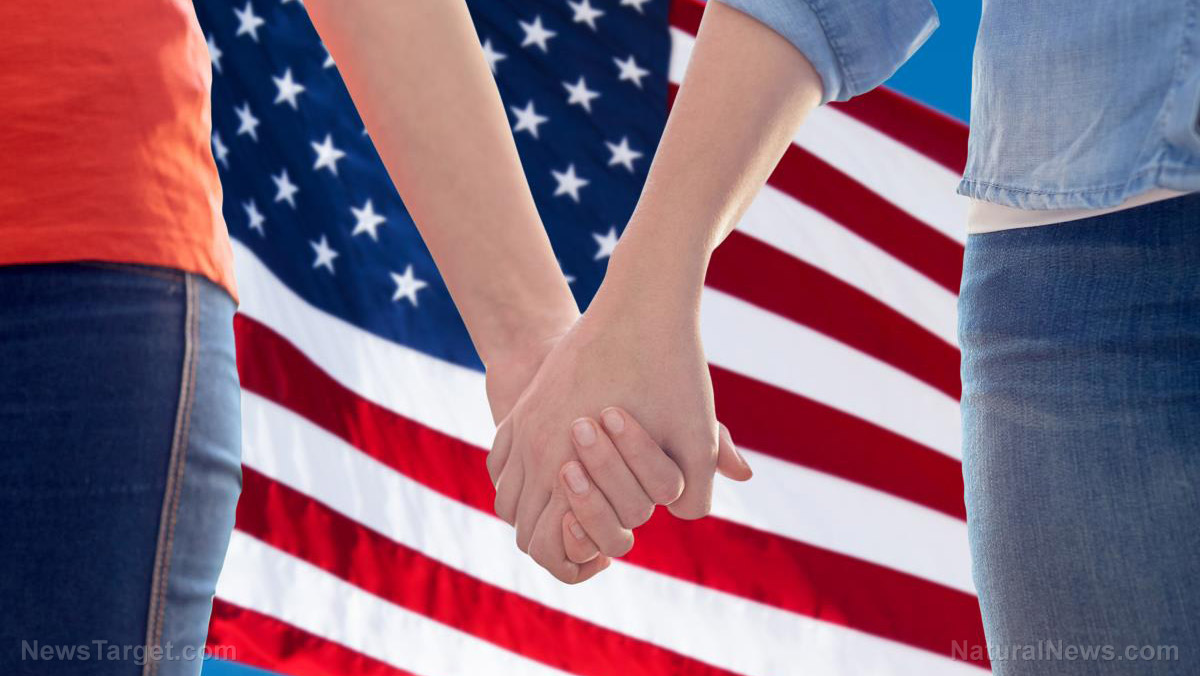 Parler
Parler Gab
Gab
- Kim Davis appeals a $360,000 verdict for refusing to issue marriage licenses to same-sex couples.
- She is petitioning the U.S. Supreme Court to overturn the 2015 Obergefell v. Hodges ruling that legalized same-sex marriage.
- The case argues her refusal was protected by the First Amendment's guarantee of free exercise of religion.
- The Supreme Court is considering the petition in a private conference, with a decision on whether to hear the case expected soon.
- If accepted, the case could be argued in 2026, presenting a direct challenge to a decade of nationwide marriage equality.
The case of conscience and law
The conflict began in the summer of 2015, just days after the Supreme Court’s 5-4 ruling in Obergefell v. Hodges. As the Rowan County Clerk, Kim Davis was the sole official responsible for issuing marriage licenses. Citing her religious beliefs as an Apostolic Christian, she refused to authorize licenses for same-sex couples, turning away David Ermold and David Moore and advising them to go to another county. Davis declared she was acting “under God’s authority,” a stance that led a federal judge to jail her for contempt of court. While she was incarcerated, the Kentucky legislature passed a law removing clerks’ names from marriage licenses, a compromise that allowed her to resume issuing licenses upon her release. However, the legal action against her for damages continued, culminating in a federal jury awarding the couple $100,000 in compensatory damages, with attorneys' fees bringing the total judgment to $360,000.The legal pathway to the Supreme Court
Davis’ appeal argues on two primary fronts. First, her legal team, led by Liberty Counsel’s Mathew Staver, contends that the First Amendment’s Free Exercise Clause protects a government official from personal liability when acting on sincere religious conviction. They assert that forcing Davis to authorize a marriage that violated her beliefs constituted a substantial burden on her religious freedom. Lower courts have consistently rejected this defense, ruling that as a government agent, she was bound to uphold the Constitution and could not use her personal faith to deny citizens their legal rights. The second, more profound argument is a direct challenge to Obergefell itself. The petition urges the court to correct what it calls a “legal fiction,” arguing the 2015 decision invented a right with no basis in the nation’s history or tradition—echoing the reasoning the court later used to overturn Roe v. Wade. Key events in the case timeline:- June 2015: Supreme Court decides Obergefell v. Hodges.
- July 2015: Davis refuses marriage licenses to same-sex couples.
- August 2015: Davis is jailed for contempt of court.
- 2023: A federal jury awards $100,000 in damages to Ermold and Moore.
- August 2025: Davis files her petition with the U.S. Supreme Court.
- November 2025: The Supreme Court holds its first conference to consider the petition.
A shifting judicial landscape
The current Supreme Court bears little resemblance to the one that decided Obergefell a decade ago. Its 6-3 conservative supermajority has shown a willingness to overturn long-standing precedent, most notably in the 2022 Dobbs decision that eliminated the federal right to abortion. In a concurring opinion in Dobbs, Justice Clarence Thomas explicitly suggested the court “should reconsider” other substantive due process precedents, including Obergefell. While the other conservative justices have not publicly endorsed that view, the mere possibility has galvanized activists on both sides of the issue. This shifting landscape provides the backdrop for Davis’ petition, transforming it from a narrow dispute over official immunity into a potential vehicle for a sweeping constitutional reassessment.The stakes for the nation
The outcome of the court’s deliberation carries immense weight. For Davis and her supporters, the case is a fundamental test of religious liberty, questioning whether individuals can be compelled to endorse state actions that conflict with their core beliefs. For the LGBTQ+ community and its allies, it represents a threat to the legal stability of an estimated 823,000 same-sex marriages. While the 2022 Respect for Marriage Act provides a federal backstop by requiring states to recognize lawful marriages performed elsewhere, a decision overturning Obergefell could still throw state-level marriage laws into disarray and undermine the constitutional status of existing unions. The case also poses a critical question about the rule of law: whether public officials can refuse to perform their duties based on personal conviction.A nation awaits the Court's decision
As the justices deliberate in private, the nation watches, aware that the case of Davis v. Ermold is more than a dispute over a decade-old penalty. It is a direct challenge to a settled feature of American life for millions and a test of how the current court will balance newly asserted religious liberties against established civil rights. The decision to hear the case, expected to be announced shortly after the conference, will signal whether the court is prepared to reopen a contentious national debate many considered closed, or whether the precedent of Obergefell will stand for the foreseeable future. Sources for this article include: TheEpochTimes.com ABCnews.go.com TheGuardian.comSenate hearing exposes FLAWS of Google’s election content moderation
By Kevin Hughes // Share
AI’s dual revolution: Job displacement, decentralization, and global power shifts
By Finn Heartley // Share
Four more suspects arrested in alleged ISIS-inspired Halloween terror plot across three states
By Patrick Lewis // Share
Republicans move to cut federal funds to NYC with MAMDANI Act
By Ramon Tomey // Share
The ballot and the budget: A clash over voter eligibility and federal aid
By Willow Tohi // Share
Iraq halts fuel imports, declares ENERGY INDEPENDENCE after decades of instability
By Lance D Johnson // Share
Vinegar: The surprising natural remedy for depression symptoms
By newseditors // Share
AI’s dual revolution: Job displacement, decentralization, and global power shifts
By finnheartley // Share
Trump announces affordable Ozempic plan amid safety concerns and Novo Nordisk executive collapse
By finnheartley // Share









